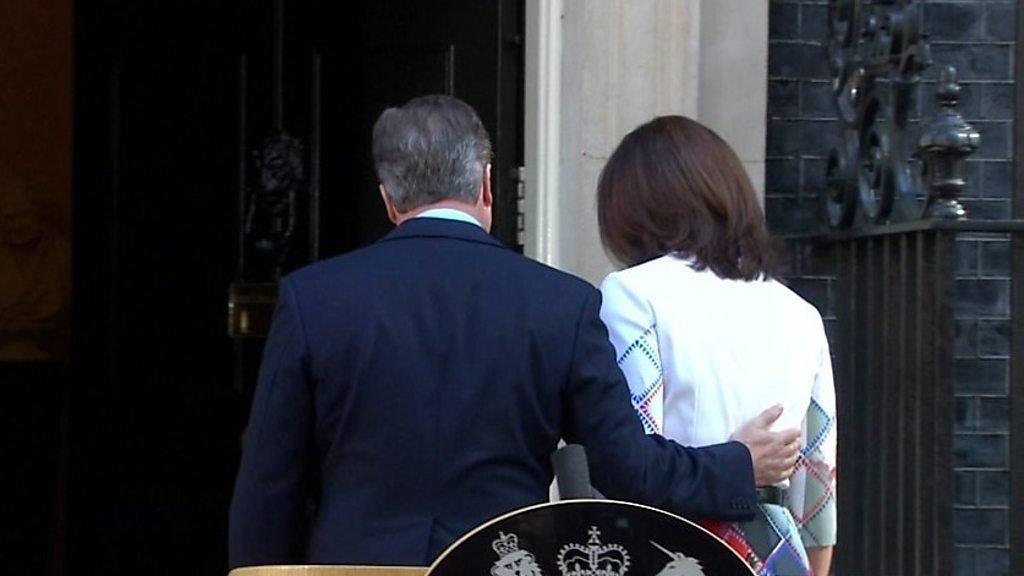Brexit: Theresa May could trigger Brexit 'within weeks'
- Published
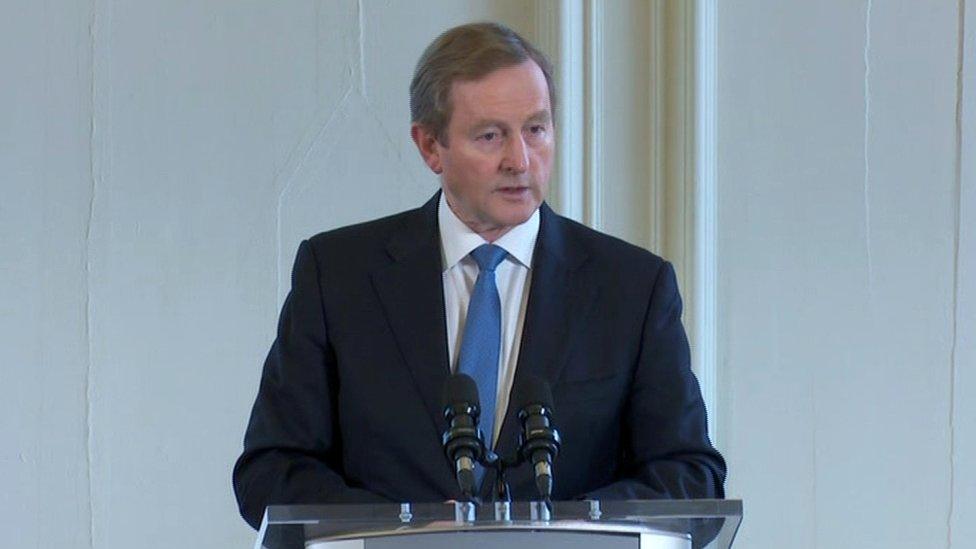
Enda Kenny said some EU leaders would become quite hostile to Britain
Theresa May could trigger Brexit in weeks and some EU leaders could turn "vicious" in negotiations, the Irish prime minister has warned.
Taoiseach Enda Kenny was speaking before a meeting in Dublin to discuss the impact of Brexit for the island.
Representatives from business and farming organisations, as well as civic society, are also attending the talks.
However, neither the Democratic Unionist Party nor the Ulster Unionist Party are at the conference.
Mr Kenny wants the All Island Civic Dialogue on Brexit, which is taking place at the Royal Hospital in Kilmainham, to map out the challenges posed by by the UK's decision to leave the European Union, and assess its potential impact on different parts of society.
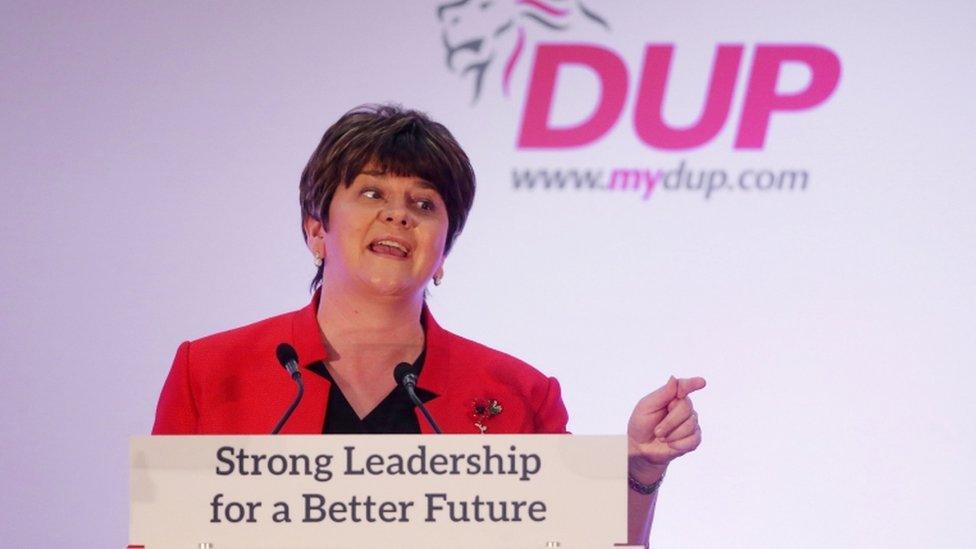
First Minister Arlene Foster has dismissed the gathering as a grand-standing exercise for 'remoaners'
Mr Kenny said the prime minister had indicated she would trigger Article 50 - the mechanism for leaving the EU - before the end of March.
"That doesn't mean it might not be triggered in December - or January or February," he said.
He added that some European leaders would become very hostile to Britain.
"The other side of the argument may well get vicious after a while, because there are those around the European table who take a very poor view of the fact that Britain decided to leave.
Chris Buckler reports on how Brexit might affect firms on both sides of the Irish border
"That argument, I think, will be fought very toughly in a really difficult negotiating sense."
'Everybody impacted'
The conference is being attended by Sinn Féin, the SDLP and the Alliance Party.
Brexit was an issue that had the "potential to impact on everybody on the island, north and south", said Mr Kenny.
"It has implications for so many aspects of our relationship and it presents the most significant economic and social challenge of the last 50 years."
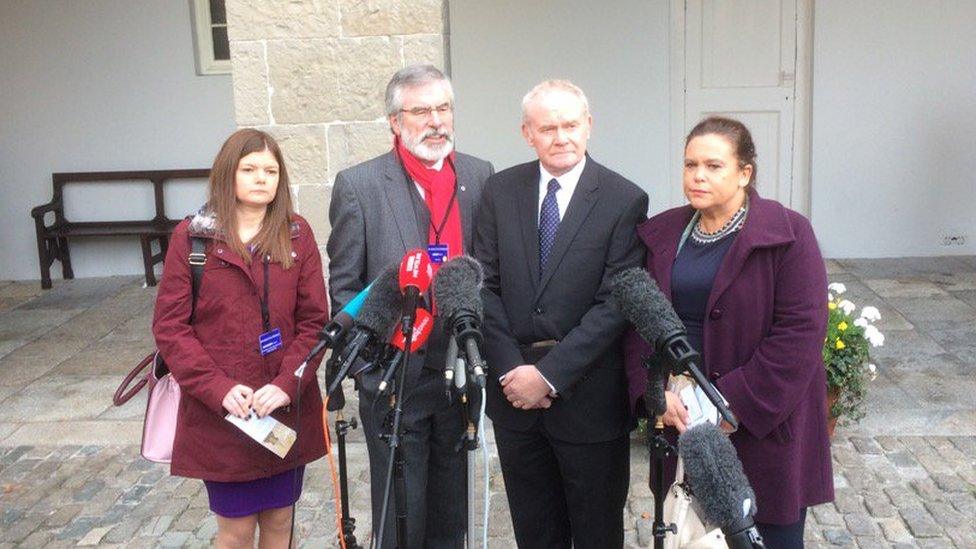
Sinn Féin are among the political parties at the conference in Dublin on Wednesday
DUP leader Arlene Foster has dismissed the gathering as a grand-standing exercise for what she calls "remoaners", but said real business could be done at the North-South Ministerial Council meeting later this month.
SDLP leader Colum Eastwood said it was a missed opportunity for the DUP.
"The people like Arlene Foster, who argued and fought for Brexit and told us that there was going to be fantastic opportunities, now need to realise that there are not any unique opportunities from Brexit, there are only difficulties."
Sinn Féin leader Gerry Adams re-iterated that his party was pushing for a "special status" for Northern Ireland.
He said: "This is not about a hard Brexit or a soft Brexit, but about an alternative to Brexit."
Alliance leader Naomi Long said: "We would obviously prefer a soft Brexit, or indeed no Brexit at all.
"But we also need to confront the notion of a one-size-fits-all Brexit, and in this regard, we do support consideration of some form of special status for Northern Ireland."
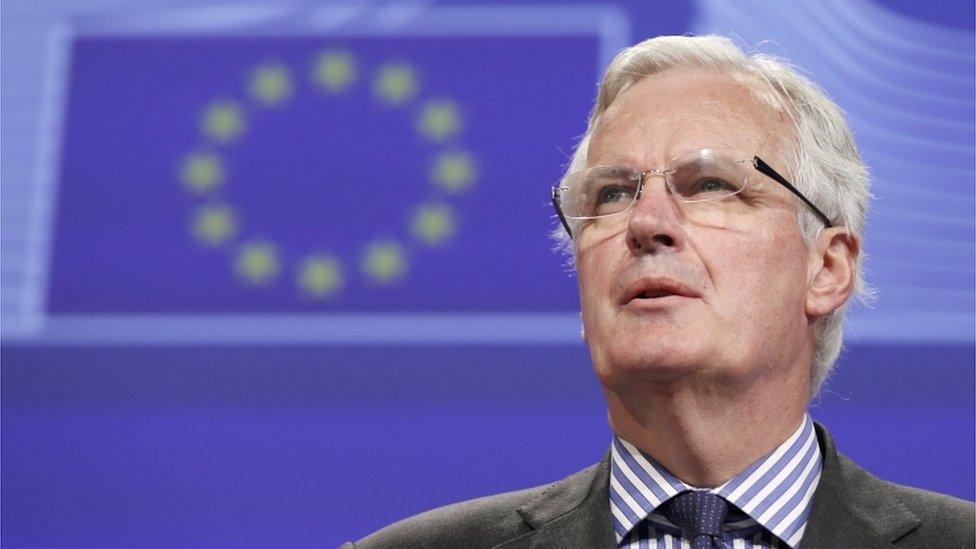
Sources say EU negotiator Michel Barnier has a strong sense of the problems posed for border areas
The Republic of Ireland is one of 27 countries that the EU will be negotiating on behalf of, but it is the only member with a land border with the UK.
The Irish government has concerns about:
The implications of the vote for the border with Northern Ireland and the peace process
The continuation of the Common Travel Area that precedes both the UK and the Republic joining what is now the EU
The 1bn euros a week in trade between the Republic and the UK
Although the EU has said no negotiations can begin until Article 50 of the Lisbon treaty has been triggered, senior sources in Dublin told the BBC that the heads of all the civil service departments in the Republic and London have met in recent weeks to "tease out" issues, without engaging in side-negotiations.
The sources said that Michel Barnier, who is heading the European Commission's team, is aware of this and has a strong sense of the problems posed for border areas.
In advance of this month's North-South Ministerial Council meeting, Mr Kenny has asked all his ministers to have advance talks with their Northern Ireland counterparts.
- Published26 October 2016
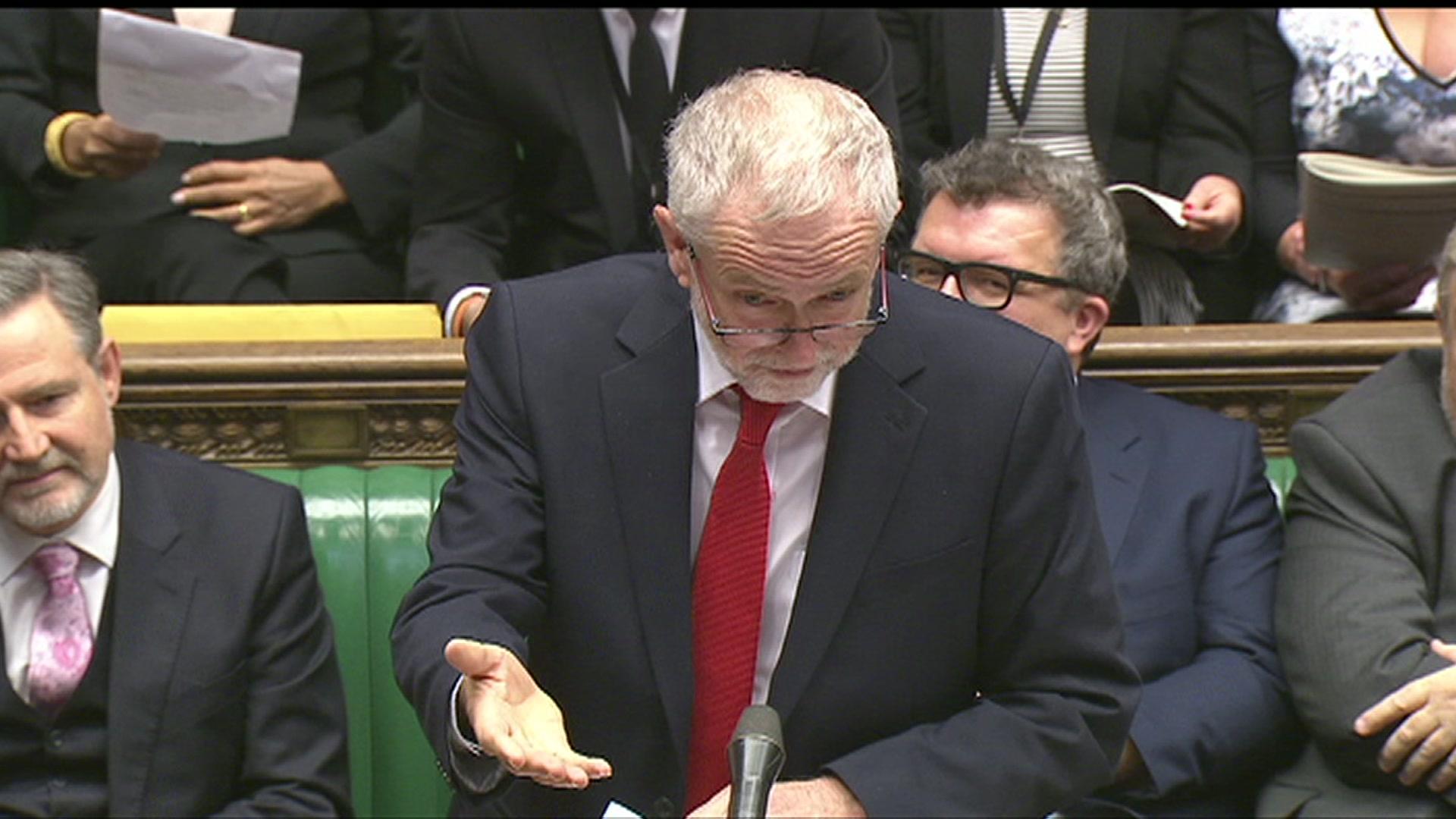
- Published2 July 2016
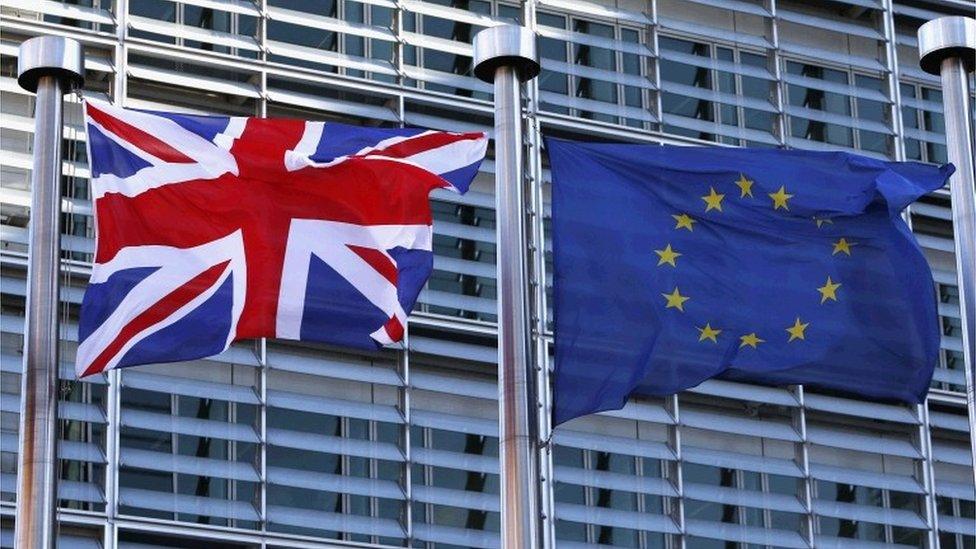
- Published24 June 2016
